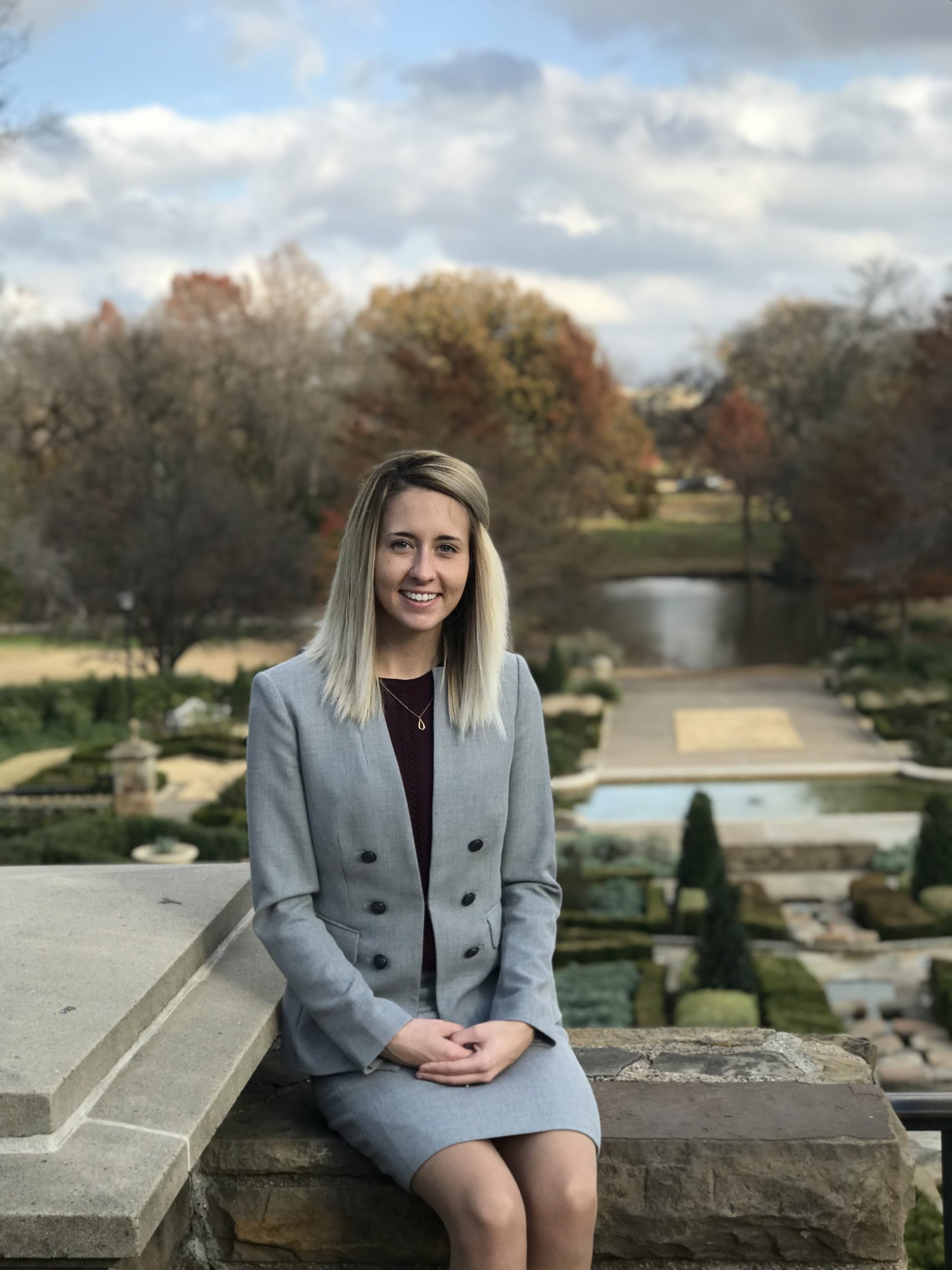McGovern Medical School at UT Health is located near Houston, Texas, a major metropolitan city with affordable student housing rates. It’s just one of the many reasons why students might select McGovern Medical School as their first choice for medical school.
If you don’t recognize the McGovern name, that’s because it’s relatively new. The school, which is part of the University of Texas, was called the University of Texas Health Science Center at Houston. That was until the John P. McGovern Foundation donated $75 million to the school. It has since been renamed in honor of their significant contribution.
McGovern Medical School at UT Health is also affiliated with Rice University. This means they support Rice undergraduates who are pursuing a medical degree.
If all (or even part) of this sounds good to you, keep reading to learn all about McGovern Medical School at UT Health. It’s all part of our pre-health advising and medical schools admissions consulting here at IMA.
Medical Programs at McGovern Medical School
As awesome as McGovern Medical School might sound, it’s important to know what programs it offers. So, let’s dive right in and see if McGovern Medical School has what you need for your future as a doctor.
- Doctor of Medicine Program (MD)
- Doctor of Medicine + Doctor of Philosophy
- Doctor of Medicine + Master of Business Administration
- Doctor of Medicine + Master of Public Health
- Doctor of Medicine + Master of Bioethics
- Doctor of Medicine + Dentistry
Doctor of Medicine (MD) Program
The traditional, four-year program is offered at McGovern Medical School to students who want to become medical doctors.
Core Competencies
The first thing you should consider is whether you have the core competencies that McGovern expects of all its students.
- Patient Care and Clinical Skills
- Medical Knowledge
- Interpretation of Medical Data / Practice-Based Learning and Improvement
- Interpersonal and Communication Skills
- Professionalism
- Systems-Based Practice
These core competencies are designed to set students up for success. Each core competency will prepare students to become the kinds of doctors that patients hope to find.
Curriculum
- Foundations of Medical Science
- Doctoring I: History and Physical
- Hematology + Introduction to Pathology
- Cardiovascular
- Renal
- Pulmonary
- Doctoring II: Longitudinal Clinical Experience
- Gastrointestinal
- Nervous System + Behavior
- Endocrine
- Doctoring III: Longitudinal Clinical Experience
- Reproductive Systems
- Musculoskeletal System + Dermatology
- Step 1 Prep
- Internal Medicine
- Scholarly Concentration
Longitudinal themes include Professionalism/Ethics; Evidence Based Medicine; Systems of Care; Population Health; and Clinical Skills.
Required Clerkships
- Surgery
- Pediatrics
- Neurology
- Family Medicine
- Geriatrics
- Obstetrics/Gynecology
- Psychiatry
Career Focus Tracks
- Critical Care
- Ambulatory
- Advanced Patient Care
- 5 Elective Courses
For more details and information on these courses, clerkships, selectives and electives, visit this page and scroll to the bottom.
Doctor of Medicine + Doctor of Philosophy Dual Degree
If you’re passionate about medicine and research, you might want to check out the MD/PhD dual degree. Students will take all the courses for the MD curriculum.
Additionally, you’ll spend time working on the dissertation you need to earn your PhD.
During your time in the program, you’ll have the opportunity to work with patients under supervision at UT Health’s Anderson Cancer Center, the Graduate School of Biomedical Sciences, and the Center for Clinical and Translational Sciences. Your learning will be in-house, saving you travel and moving costs throughout your time at McGovern Medical School.
For detailed information on all aspects of the MD/PhD dual-degree program, visit this page.
Doctor of Medicine + Master of Public Health
This dual-degree option is ideal for students who care about healthcare on a broader level. While treating patients in a clinical setting is necessary for our society, it’s also important to consider public health. Public health involves the entire community and how healthcare in your area is affecting residents.
This program usually takes about five years to complete, which shaves off an entire year for most students. For detailed information, visit this website.
Doctor of Medicine + Master of Business Administration
This is the first dual-degree option that isn’t kept in-house. McGovern Medical School partners with the University of Houston-Clear Lake to make this degree possible.
The healthcare environment seems to change every time we blink, and an MBA is a great way to blink fast enough to keep up with it. With both of these degrees, you’ll be equipped to help patients medically and financially. You’ll also be well-prepared for leadership positions in a variety of medical settings.
You’ll want to apply to both schools as soon as possible. Go here to apply to UHCL.
Be sure to speak with your student advisor. Let them know that you want to be a dual-degree student, as opposed to just being an MD candidate. They’ll help you make sure that you’re in good standing and eligible to be a dual-degree student at both universities.
For detailed information on the MD/MBA program, go here.
Doctor of Medicine + Dentistry
This dual-degree option is ideal for students who want to go into dentistry, specifically those who want to perform facial surgeries. Go here for ample information on everything that UT Health School of Dentistry has to offer.
Doctor of Medicine + School of Biomedical Informatics
This unique dual degree doesn’t necessarily keep students at McGovern Medical School. You have the option to go to the Rio Grande Valley Campus to complete your MD training.
The School of Biomedical Informatics is focused on electronic health records systems and clinical decision support systems. The curriculum examines how these tools can be improved. You’ll learn all about data interpretation and how to manage what you find. There are specific ways that you’ll learn to gather and use information to improve healthcare and biomedical data.
You’ll need to complete 39 credit hours through the School of Biomedical Informatics to earn your master’s degree. Twelve of those credits can come from your medical classes. You’ll also be required to complete a practicum experience relating to biomedical informatics.
For more detailed information, go here.
Doctor of Medicine + Master of Biomedical Engineering
This dual-degree option only adds one year to your training. The Master of Biomedical Engineering degree will take all your time, though! You don’t need a thesis, but you’ll need to take a lot of classes that require your focus and concentration.
For detailed information, visit this website.
The Grades You Need to Get In
McGovern Medical School is a top university, but it’s not unreachable. Students average a 3.84 undergrad GPA and a 511 MCAT score.
Admissions Requirements
You need to be a U.S. Citizen or Permanent Resident. You can also be Pending a Permanent Resident. If you don’t meet this criterion, you won’t be able to interview for a spot at McGovern.
You’ll need to have completed 90 undergraduate hours at a U.S. or Canadian university. This is the better part of a bachelor’s degree since you need at least 120 credits to earn a bachelor’s degree anywhere.
An MCAT exam is required. McGovern Medical School will accept an MCAT score from within the past five years.
Undergraduate Course Requirements
There are several rules for the undergraduate coursework that’s listed below.
- Courses must be taken at an accredited U.S. or Canadian university.
- Courses must be for science majors. Non-science major courses will not be accepted.
- AP credit courses will be accepted if they’re listed on your official transcript.
- Graduate courses do not count.
Biological Sciences
14 credit hours (12 classroom hours + 2 lab hours) or
21 quarter hours (18 quarter lectures hours + 3 quarter lab hours)
One year of AP credits can count toward this requirement. Course options are as follows:
General Biology
- Biochemistry
- Microbiology
- Molecular Biology
- Genetics
- Ecology
- Immunology
- Parasitology
- Anatomy + Physiology
General Chemistry
8 credit hours or 12 quarter hours with accompanying labs
Course options include:
- Familiarity with Analytic and Volumetric Techniques
- Inorganic Courses
- General Chemistry
- Physical Chemistry
- Quantitative Analysis
Organic Chemistry
8 semester hours or 12 quarter hours of organic chemistry, with accompanying labs
Physics
8 semester hours or 12 quarter hours of organic chemistry, with accompanying labs
English
6 credit hours or 9 quarter hours – no lab is required
Go here for more detailed information and course recommendations.
Application Process
Applying to medical school can feel like a long and arduous journey. And in many ways, it is. That’s why pre-med advising and medical schools admissions consulting are valuable tools. If, at any point, you feel confused, please don’t hesitate to reach out to us.
McGovern Medical School at The University of Texas Health Science Center at Houston requires the following.
- Submit your Texas Medical and Dental School Application for the MD program. Texas has its own application system, so unless you’re a dual-degree student, you’ll fill this out instead of the AMCAS. If you haven’t heard of the TMDSAS application, check out our blog post on it and the primary application process.
- If you’re applying to the MD/PhD dual-degree program, you’ll also need to fill out the American Medical College Application Service. Read our article on that here.
- Submit your secondary application, including your secondary essays. (Don’t worry, we’ll get to those in the next section.) We talk about primary vs. secondary applications here. The University of Texas Health Science Center at Houston automatically sends a link to every applicant upon receiving your TMDSAS and/or AMCAS. You’ll need to completely fill out this application to be considered for an interview.
- Take the CASPer test, which you can read about here. Duet and Snapshot aren’t required. Sign up for CSP-10111 – U.S. Medicine on CASPer’s website.
Once you’ve submitted your application, the waiting game begins. McGovern Medical School at UT Health utilizes AAMC’s holistic review process to determine whether to interview you. We’ll discuss the interview process more after we go over the secondary essays.
Secondary Essays
Secondary essays are a fancy way of saying that you need to write essays for McGovern Medical School that TMDSAS and AMCAS don’t require.
McGovern Medical School (and every other medical school out there) require these essays to get to know you better as an applicant. Your personal statement shows them the big picture. Your secondary essays help McGovern Medical School understand how you respond to certain situations or feel about things.
McGovern Medical School at UT Health asks students the following questions, with each essay maxed out at 2500 characters. We’ll go over each question, explain how to answer it and provide samples. If writing isn’t your forte, consider us for help. We can help you format your essay, come up with topics to write about, and help you polish it. Basically, we can do everything but write it for you. It’s part of our pre-health advising and medical schools admissions consulting.
Question #1
How have your experiences prepared you to be a physician?
This question might seem scary because you might not know the answer to this right away. It’s okay if you need to think about it. Reflecting on past experiences can bring new insights that are perfect to write about.
There are several angles from which you can write this essay. You can discuss events from your personal life or volunteer experiences. Just be sure to fully answer the question. That’s one of the pitfalls we see students fall into. It’s easy to get carried away in your story and forget what the question was. Be sure to discuss specifically how your experiences have prepared you to become a doctor.
Here’s an example:
Growing up in a big city like Dallas, Texas, exposed me to a lot early on. I lived in a lower, middle-class neighborhood with my single, working mother and my older brother. My mother endlessly worried about me because I was a girl in a neighborhood with a high crime rate.
I wasn’t allowed to go out by myself in my neighborhood. When the bus dropped me off from school, I was required to go straight inside. I couldn’t even play in the front yard since there was no fence. My after-school hours consisted of playing by myself in the backyard and doing homework inside the house. I never quite understood why my mother was so strict. She wouldn’t explain it to me. All she would say was that we had ground rules to keep me safe.
Looking back on it now, I’m thankful that my mother was protective of me. But I wish she had taken a different approach. Instead of instilling fear into me, I wish she had educated me. Growing up that way taught me to stay inside to avoid anything bad that could potentially happen. I don’t think that’s a healthy mindset to have.
When I was in seventh grade, I met my first boyfriend, Tony, at school. Tony was from a rich part of town and already had a car waiting for him when he got his license. My mom worked nights and my brother had an after-school job. So, while my mother thought I was going straight home, I started going to Tony’s house instead. It was only then that I got to have fun. It was a shame that it had to be behind my mother’s back, but that’s the way it was.
Most of my childhood was filled with memories of sneaking around. It might seem weird that those experiences were what prepared me to be a physician. But they were. I don’t want my future patients to live in fear, feeling like they have to hide from everything. If they’re in pain, I want to know so that I can help them feel better. Isn’t that what being a doctor is all about? I sure think so.
Like we said, you don’t need an extraordinary story. Experiences that prepare you to become a physician can come from everyday experiences.
Question #2
Describe a time or situation where you have been unsuccessful or failed. What did you learn from this experience and how have you applied this learning to your work and/or life?
This question is hard to answer because no one wants to admit that they’ve failed. It’s easier to leave those memories buried in the sand. We feel you. But your answer is important to McGovern Medical School.
Why?
Because every doctor is sometimes unsuccessful at figuring out what exactly is wrong with a patient. And that’s just one example. We all fail sometimes at a variety of things. Acknowledging that failure and learning from it is crucial to becoming a good doctor.
Question #3
What would you like to contribute and be remembered for in medicine?
This is a really fun question to answer unless you’ve never thought of it before. In that case, it might stress you out. But don’t overthink it. You might want to reach for the stars, or you might have small, simple goals that you want to achieve. There are no rules regarding what you can contribute or leave as your legacy. Think about it; then write an honest answer.
Here’s an example:
I was diagnosed with thrombocytopenia when I was a teenager. It’s a blood disease where your blood doesn’t clot properly. It was really scary because, when my platelets got super low, I wasn’t allowed to participate in activities. If I got hit with a ball during a game of dodgeball, I could risk bleeding internally. It was terrifying.
Having thrombocytopenia ruined a big part of my time spent in high school. I wasn’t able to be a cheerleader or play volleyball, which were two activities that I enjoyed in elementary school and junior high. I had to be very still most of the time.
I had my blood drawn once a week to make sure that I was okay. Rachel was the nurse who took my blood at the clinic. Rachel made me feel like everything was going to be okay. I remember one time when Dr. Barger would be deciding if I could play sports for my senior year. I was very nervous, and she was running late with another patient.
Even though she had other things to do, Rachel stayed with me until Dr. Barger arrived. She played a game called Heads Up with me, where I gave her clues to guess what something was. It was fun making elephant noises—or at least trying to—so she would guess that it was an elephant.
I’ll never forget that day. Not only was I able to play sports for my senior year, but Rachel made what would have been a long, quiet, scary wait, a memorable moment that almost passed by too quickly since we were having so much fun.
That’s the legacy I want to leave behind. I want to be a doctor who emulates Rachel’s heart. I want to be full of character and life. I want to help scared patients feel okay again. If I can leave that legacy behind, then I’ll have fulfilled my mission.
Interview Day at McGovern Medical School
Congratulations! Getting an interview with McGovern Medical School means that they’re seriously considering you as an MD candidate for the program to which you’ve applied.
Right now, you’ll most likely have your interview over Zoom or another videoconferencing platform. Once the COVID-19 pandemic is a thing of the past, in-person interviews will resume.
McGovern Medical School at UT Health conducts interviews using the traditional interview format. This means that you’ll sit down, one-on-one with an interviewer. Generally, a member of the admissions committee will sit down with you. But, sometimes, you’ll be interviewed by a current medical school student or another faculty member.
Either way, you’ll be asked questions about your application. You’ll be asked to describe certain experiences in more detail. Some questions will include, “Why do you want to be a doctor?” “Why McGovern Medical School?” “Tell me about yourself.” We recommend thinking about these details in advance. That way, you’ll be prepared.
Feeling nervous anyway? That’s to be expected. A medical school interview is a big deal! The good news is, we can help. Our pre-health advising and medical schools admissions consulting includes interview prep. We offer four different tiers of admissions consulting, as well as hourly consulting. No matter how much help you need, we have an option that can work for you. Reach out to us today if you’d like help preparing for your interview!
Conclusion
Preparing for medical school is a big deal! IMA is here to help you on your journey however we can. Remember, it’s important to apply to multiple medical schools. So, while you’re on our blog, check out the other schools we’ve featured (so far) in our definitive guides to getting into medical school.
- Johns Hopkins Medical School
- Baylor College of Medicine
- George Washington University School of Medicine
- Vanderbilt University School of Medicine
- St. George’s University School of Medicine
- Lake Erie College of Osteopathic Medicine (in Pennsylvania)
- Sidney Kimmel Medical College at Thomas Jefferson University
- Wake Forest University School of Medicine
- Western University of Health Sciences (in California)
- Drexel University College of Medicine
- Stritch School of Medicine at Loyola University Chicago
- Georgetown University School of Medicine
- Yale School of Medicine
- Perelman School of Medicine
- UCLA Medical School
- NYU Medical School
- Washington University School of Medicine
- Brown Medical School





